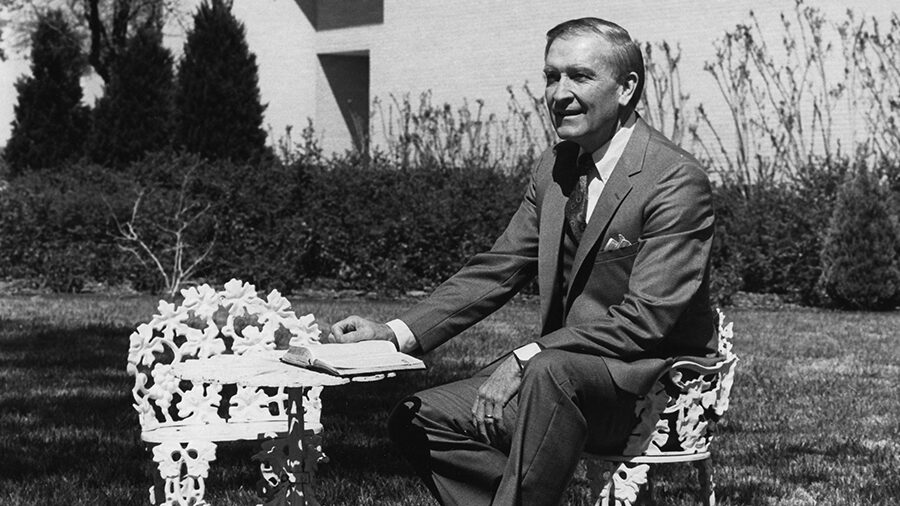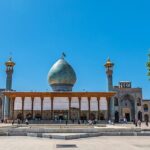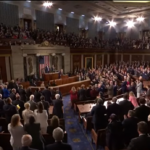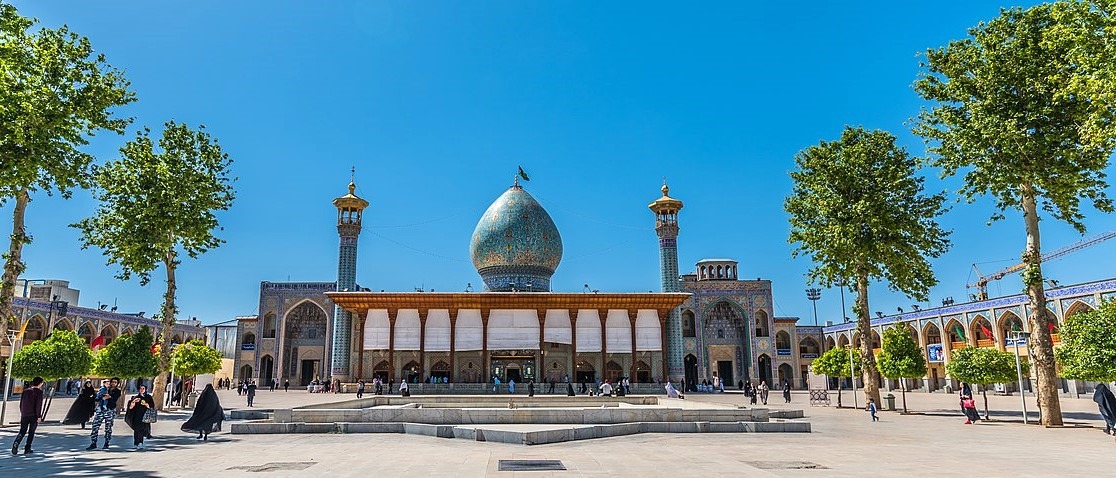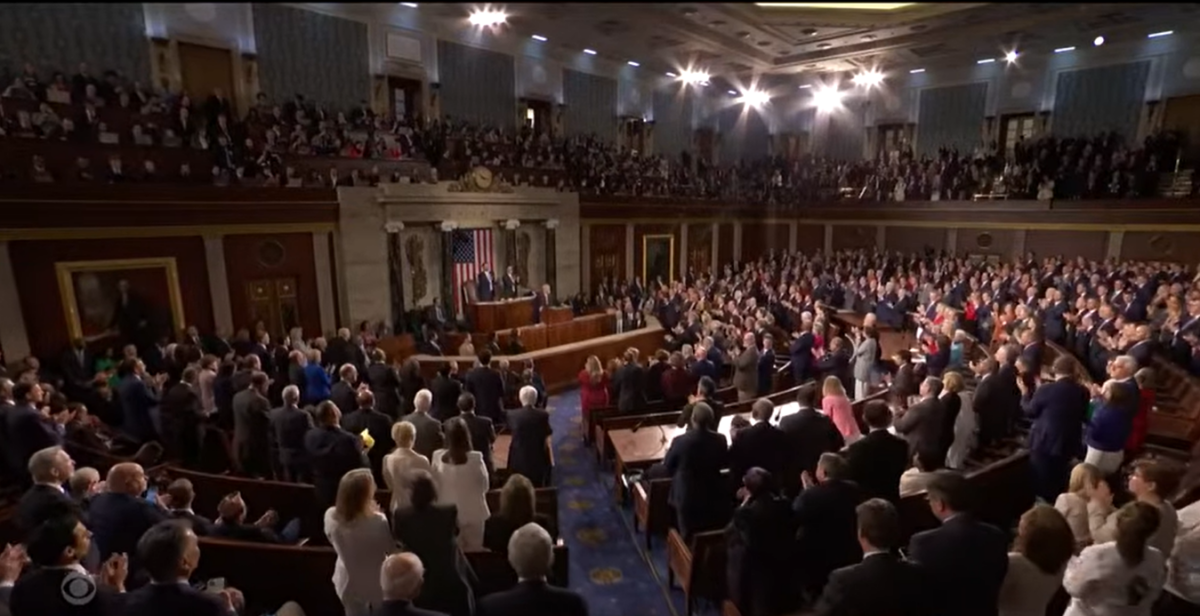Russell Hooper Dilday Jr., the sixth president of Southwestern Baptist Theological Seminary, died on June 21 in Dallas. He was 92.
During his tenure as president of SWBTS, he saw the school’s endowment more than double while leading the seminary to its greatest periods of growth.
Dilday had been in failing health the past two years, according to his daughter, Nancy Dilday Duck.
“Daddy never lost his wonderful sense of humor and his heart for ministry,” his family said in a statement. “Everyone around him loved and admired him. We are sad to lose him, but we are grateful for his amazing life and all he did for the Kingdom of God. We have lost a wonderful father and Baptists have lost a great leader.”
David S. Dockery, current president of Southwestern Seminary, recalled that “Dilday had just come to serve as president of Southwestern Seminary when I came to Southwestern as a student.”
“As a student, I always appreciated his leadership for the seminary and his care for students,” he noted. “He worked tirelessly to strengthen the faculty, enhance the facilities, and to grow the endowment during these early years of his presidency.”
Dockery added that “Southwestern continues to be blessed by these faithful efforts. We join with many across Baptist life in offering our prayers for and expressing our Christian sympathy to the Dilday family at this time.”
Chancellor O.S. Hawkins noted, “I thank God for Russell Dilday. Although we were on different sides of the Southern Baptist Convention divide, I never lost my love and respect for him. Southwestern Seminary saw some of its greatest days during his presidency. He loved the Lord and left a legacy.”
Accepting the call to ministry
Dilday was born in Amarillo, Texas, on Sept. 30, 1930, to Hooper and Opal Dilday. He accepted Christ as his personal savior and Lord at the age of 9.
Sensing a call to full-time vocational ministry during his senior year of high school, Dilday enrolled in Baylor University in Waco, graduating in 1952 with a bachelor of arts in religion and English. At Baylor, Dilday met Betty Doyen, and they married the summer after graduation before moving to Fort Worth, where Dilday began his master of divinity studies at Southwestern Seminary.
Three weeks after beginning his first semester, Dilday accepted a pastorate at Antelope Baptist Church in Jack County, Texas. For the next eight years he attended classes, served as pastor, worked in secular jobs, and eventually, taught adjunctively at Southwestern Seminary. He completed his master of divinity and then earned his doctor of philosophy from Southwestern.
Despite having a strong desire to teach, Dilday discerned that the Lord intended him to remain in the pastorate — at least for a season — and so he continued to pastor churches in Texas and Georgia until 1978.
Eyes on Dilday
In 1976, Robert E. Naylor, the fifth president of Southwestern Seminary, announced that he planned to retire in two years. This early announcement was intended to provide trustees time to find a replacement and allow for a smooth transition between administrations.
The presidential search committee eventually set their sights on Dilday, then-pastor of Second-Ponce de Leon Baptist Church in Atlanta, Georgia.
By that time, Dilday not only had pastoral experience but had also worked within the denomination, serving as a trustee of the Home Mission Board, a member of the executive committee of the Georgia Baptist Convention, and second vice president of the Southern Baptist Convention.
Dilday was elected Southwestern Seminary’s sixth president during the trustees’ fall meeting in 1977. He later reflected that he “was overwhelmed with the privilege and challenge of helping equip ministers of the gospel in the school I had always cherished.”
Dilday and his family moved to Fort Worth in January 1978. Naylor’s tenure would officially end on July 31, with Dilday to begin Aug. 1.
Major initiatives
Dilday launched two major initiatives during his presidency — Vision 85 and Upward 90 — to meet these goals. These comprehensive plans entailed goals and strategies to be accomplished by 1985 and 1990, respectively.
Through these initiatives, Southwestern Seminary, among other things, built Roberts Library, renovated existing facilities, added a three-story addition to Cowden Hall comprising Bowld Music Library, launched the Tandy Archaeological Museum, created a preaching center, and attained funding for 12 academic chairs.
In 1980, as part of Vision 85, the seminary launched what is now known as the World Missions Center (WMC) in order to produce a heightened, intentional focus on missions and evangelism. This led to an unprecedented number of new courses, degree programs and conferences.
Furthermore, through the WMC, hundreds of students became involved in missions and evangelism practicums as they learned on the field in the United States and overseas.
Reaching highest-ever enrollment
Though Southwestern Seminary had already become the world’s largest seminary during Naylor’s presidency, it continued to grow during Dilday’s tenure, reaching its highest-ever enrollment of more than 5,000 students in the 1980s.
Thus, under Dilday’s leadership, Southwestern Seminary trained the largest number of theological students in history and came to be recognized as not only the biggest seminary in the world, but also one of the best.
In 1990, Christianity Today released a poll of its readers ranking the effectiveness of American seminaries, and Southwestern Seminary was ranked number 1 among the top 33 graduate theological schools in the nation.
Dilday’s presidency ended in 1994 when trustees relieved him of office to seek new leadership.
Following his dismissal, Dilday reminded students that “the work of the Kingdom is bigger than any of us — bigger than trustees or presidents or even students.”
He said their noblest response would be “to get back into class and continue their studies; to apply themselves more diligently than ever to the work God had called them to do.”
New opportunities
After leaving Southwestern Seminary, Dilday remained committed to equipping ministers of the gospel, serving as distinguished professor of homiletics at Baylor University’s Truett Theological Seminary; interim pastor of multiple churches in Texas; interim president of Howard Payne University; and most recently, as chancellor of the B.H. Carroll Theological Institute, which he helped launch in 2003.
Dilday was preceded in death in 2018 by his wife of 66 years, Betty, and in 2019 by his son, Robert Dilday. He is survived by his daughters, Nancy Dilday Duck and Ellen Dilday Garrett, as well as six grandchildren and six great-grandchildren.
Dilday’s life and ministry will be remembered in a memorial service on Saturday, July 8, at 10:00 a.m. at Park Cities Baptist Church in Dallas.
EDITOR’S NOTE — This story was written by Ashley Allen and Alex Sibley and originally published by Southwestern Baptist Theological Seminary. The Baptist Standard contributed to this story.

